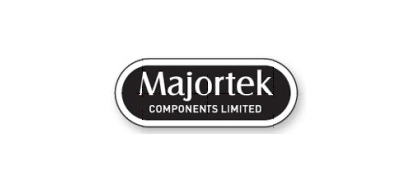
Based in Southampton, Majortek Components Limited are an independent company specialising in the design and manufacture of cable management products and accessories. They work with clients in a wide variety of industries - including aerospace, defence, communications and healthcare - and they wanted to achieve ongoing ISO certification in order to demonstrate their dedication to quality to their broad and diverse customer base.
Eager to continue their certification as cost-effectively as possible, Majortek contacted ISO Accelerator. We helped them to speed through the registration process, and we are pleased to report that they now hold ISO 9001:2015 certification.
Here what company director Roger Renshaw had to say about ISO Accelerator's service:
It has been a pleasure dealing with your company, and we were very impressed with your speed in replying with our certificate of registration. Thank you.
Get certified online with ISO Accelerator >
Achieving ISO 9001 certification for your organisation can take both time and effort but it brings with it a number of outstanding tangible and intangible benefits which help your business improve across a number of functions. Some of the advantages that you may experience from achieving certification include but are not limited to are:
- An improved/happier workforce
- Additional business opportunities
- Cost & waste reductions
- Increased levels of productivity & success
All of these things are what every organisation hopes for when it comes to their business, but as mentioned above, making these benefits a reality can take a company months, even years, without the right support. That where ISO Accelerator comes in! If like many businesses, ISO 9001 certification is a goal you are aiming to achieve in 2018, we can help make that goal a reality in a shorter period of time. Meaning you will experience the listed advantages sooner rather than later. How can we help achieve this you may ask? Let’s take a look!
How can we help you gain certification quicker?
The way in which we help businesses who are looking to achieve ISO 9001 accreditation in a shorter period of time is by being there every step of the way, without ever having the need to visit your site or perform consultation sessions. From developing your tailored quality management system to submitting your self-declaration, we are by your side to ensure each stage of the process is completed efficiently and effectively – much faster than if you were looking to take the traditional route.
The stages involved when using us are simple. All you need to do is:
- Complete our online application form
- Design and create your tailored quality management system with the help of our experts
- Complete a Self-Declaration of Conformance
Once you have completed these steps, sent us your declaration and everything has been approved, we will then send your ISO 9001 certificate – it’s as easy as that! So, what are you waiting for? Hit the button below to contact us and start your journey to achieving your 2018 business goal!
Contact Us >

One of the great things about ISO 9001 is that it's a global standard - the benchmark is the same no matter where your business is based, and consumers know that ISO 9001 certification is a reliable mark of quality regardless of where they see it.
Here at ISO Accelerator, we help businesses to achieve ISO 9001:2015 certification within the shortest possible period (typically around 7 working days). The certification process is conducted entirely over the web, which allows us to work with businesses all over the world!
A worldwide certification service
ISO Accelerator is based in the United Kingdom, and we are accredited by USAS, who are based in Florida, USA.
We work with our clients remotely, helping them to complete the necessary steps and get certified in a matter of days. This is convenient for businesses in remote locations, and whatever industry you're in, getting certified through USAS and ISO Accelerator will save you time and money because we eliminat the need for consultation sessions and audits.
How Does it Work? Apply for ISO 9001 Certification
Photo from Pixabay

ISO Accelerator is a UK-based company offering rapid ISO 9001 certification for small/medium companies across all industry sectors. We work with clients across all sectors in the UK and across the continent.
If your business is based in Europe and you'd like to achieve ISO certification, we can help you to do it within an extraordinarily short timeframe (typically just 7 working days). Apply for certification now >
Why get certified?
ISO 9001 is the globally-recognised standard for quality management systems.There are a number of benefits to being certified:
- You will have a competitive advantage over other businesses in your industry
- Customers will know at a glance that you are dedicated to exceptional customer service
- Certain contracts may only be available to companies with ISO 9001 certification
Whether you're based in the UK or elsewhere in Europe, we are more than happy to help you achieve ISO 9010 certification.
Get certified > Find out more >
Image from pexels.com
ISO Accelerator can provide rapid certification for software companies in the UK and USA!

The tech world is constantly changing, and if your business makes its money developing software then it's important to make sure that, at any given time, all staff are on the same page and working to achieve the same goals.
A quality management system (QMS) is one way to achieve this. A good QMS will get your whole organisation working efficiently with minimal waste and an eye to customer satisfaction at all times.
Once your company has implemented a suitable QMS, you will probably want to apply for ISO 9001 certification. ISO 9001 is the global standard for quality management systems, and gaining this accreditation will:
- Mark your business out as a high-quality provider that's dedicated to excellent customer service
- Give clients an extra reason to choose you over your competitors
- Potentially allow you to take on new contracts for which ISO certification is a requirement
ISO certification can be a time-consuming process, but ISO Accelerator provide a rapid, cost-effective certification service that typically takes just 7 working days. We are happy to work with software companies in both the UK and the USA - use the links below to find out more.
How to Get Certified > Apply for ISO 9001 Certification >
Photo courtesy of pexels.com